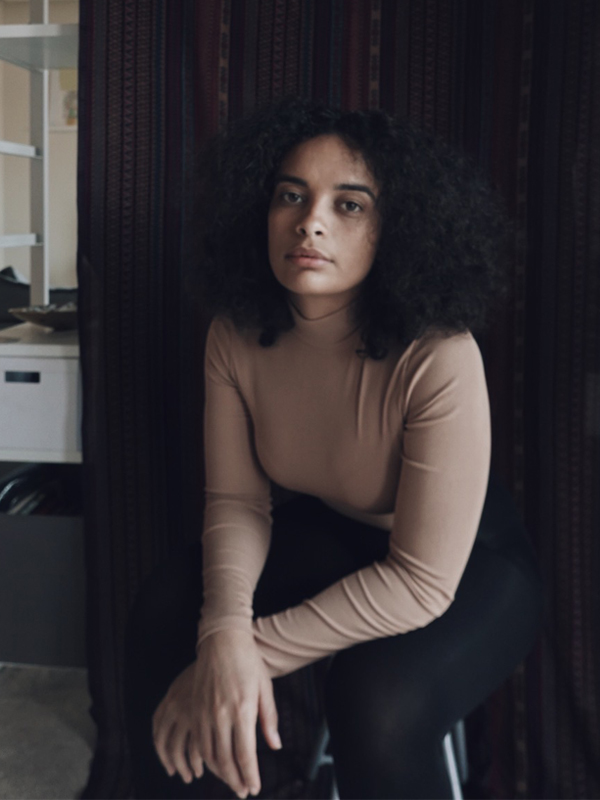
Interview MIKHA M.
Date MAY 2021
ADRIANE DE SOUZA
Human, photographer, and social scientist Adriane de Souza on observation as a catalyst for becoming more human and on empowering women athletes in Qatar through photography and profound human interactions.
Growing up between different countries, changing houses, and schools – Adriane embraced this constant change and despite the challenges it presented, her personal experience has helped her connect deeply with her inner self and adapt to different cultures without losing her true essence. “The good side of all of this is that I learned how to be more respectful and tolerant towards others, their behavior, culture, and beliefs.” Adriane says.
Social scientist by education, Adriane shifted to photography years later as a way of self-liberation, research, and further understand human interactions and emotions. In this conversation, Adriane talks to us about her early life, on the importance of connecting with oneself and the other, and how she uses photography as a medium to observe, empathize and empower under-represented communities.
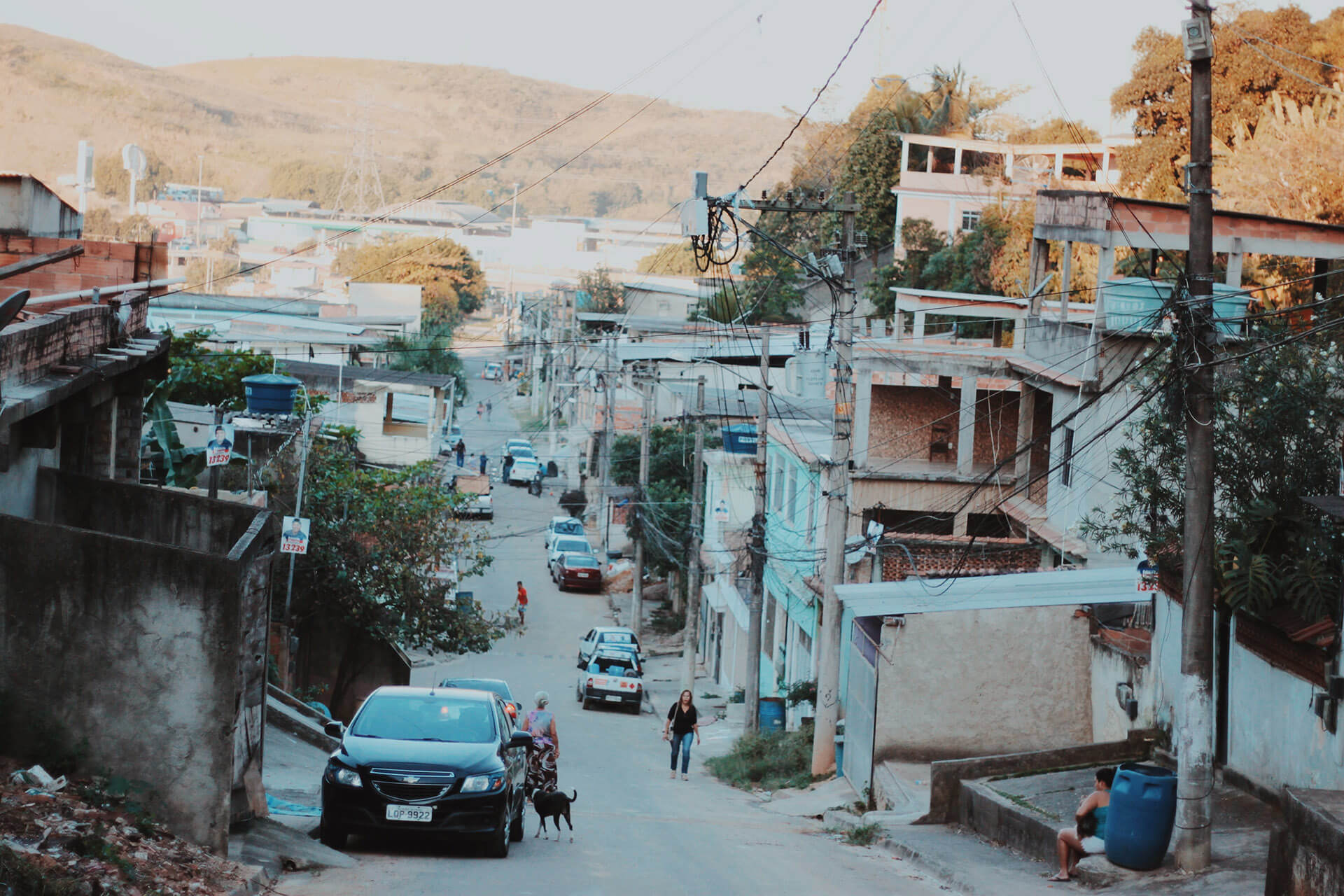
Hometown © Adriane de Souza
“SOME MEMORIES ARE VERY VIVID AND SPECIFIC AND SOME ARE A BIT CONFUSING BUT LIKE EVERYTHING IN LIFE, THERE WERE GOOD ONES AND BAD ONES.”
LFV: Where did you grow up and what was that context like?
A: I grew up moving a lot, changing houses, schools, and countries. I spent a lot of time with my family since everything around us changed constantly, and at the end of the day, we could only rely on one another. I spent my life between Brazil, Ecuador, Qatar, and Saudi Arabia. Sometimes it is hard to remember exactly where I was and which year it was that certain things happened. Some memories are very vivid and specific and some are a bit confusing but like everything in life, there were good ones and bad ones.
I was always excited before moving, I loved change, new friends, new school, new everything. At the same time, it was complicated. I didn’t experience deep and meaningful relationships like my friends did – those were very rare. Going back and forth between such different cultures I got a little lost and it took me years to understand more of who I was and who I wanted to be. But overall it was very interesting and it opened many possibilities and growth in my life. We come from a poor family and my father, just like many other Brazilians, has football to thank for the opportunities.
What brought you to Doha?
A: My father had the opportunity to join the football team in Doha, so together with my whole family we decided to move here in the early 2000s. A few years later I went back to Brazil to continue my studies and after my graduation, I came back since my family was still here. Currently, my father works here as a football coach, and I saw it as a chance to search for new opportunities here so I decided to come back and give it a try.
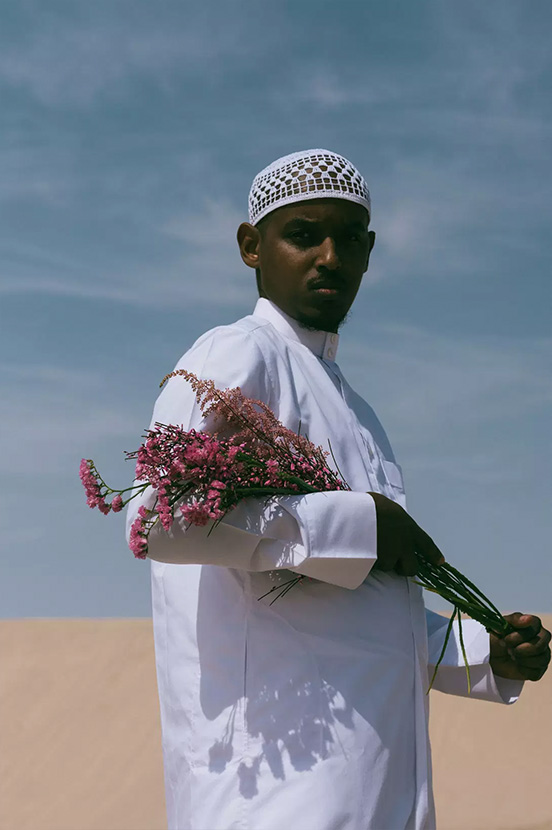
“The Process” © Adriane de Souza
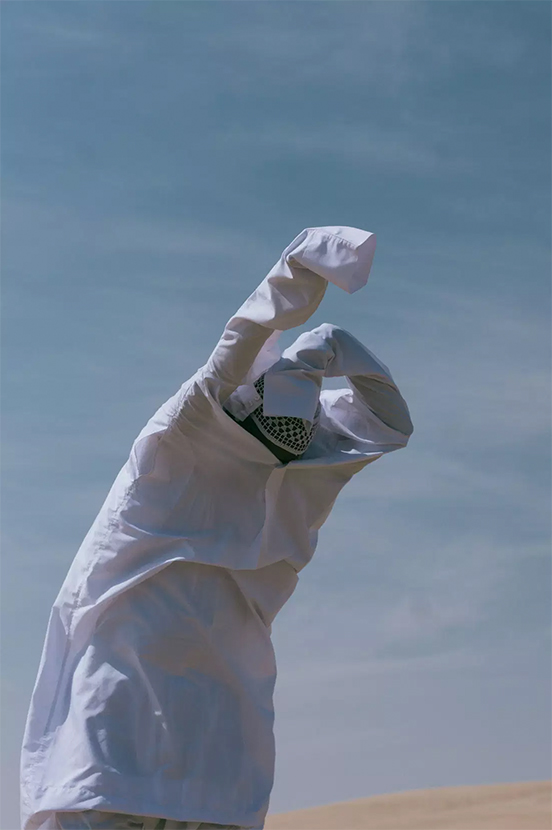
“The Process” © Adriane de Souza
“AS CLICHE AS IT SOUNDS THIS IS WHAT I VALUE THE MOST OUT OF ALL THIS — RESPECT, TOLERANCE, AND LOVE.”
What challenges and learnings have you experienced while moving and living in different countries?
A: Since I was a child this has been my life, adapting to new cultures, schools, neighborhoods, and more. It was all fun until I realized that after so much adapting and adjusting, I was losing myself. And the place I chose to find myself again was in Brazil. The hard part for me now is to adapt without losing my essence, and knowing who I am every day when I wake up, and every decision I make. I want to respect the person I am regardless of my surroundings. Even after all these years, it is still difficult for me to adapt to a very different culture, maybe because some of my essences clashes with my reality. The good side of all of this is that I learned how to be more respectful and tolerant towards others, their behavior, culture, and beliefs.
Being exposed to so many different cultures and people gave me the opportunity to be more accepting of the differences and actually look for what I have in common with others rather than what makes us different. As cliche as it sounds this is what I value the most out of all this – respect, tolerance, and love.
“THERE IS SO MUCH TO LEARN WHEN WE JUST STAND STILL AND ABSORB WHATEVER IS HAPPENING AROUND US AND INSIDE OF US.”
How did that journey influence your practice as a photographer?
A: I learned how to be an observer. I wanted to fit in instead of coming as I was, even being outgoing in some cultures could be seen as disrespectful. So I learned to observe first and then act. Observation has been a part of me since I can remember. It was like a survival mode. I guess this is the reason I chose the path I’m on and why I take a bit longer to make decisions and create. Choosing to study sociology makes so much sense after I think about my life, and photography to me is observation. I learned by observing and I create so that people take some time to pay attention to what is outside and inside. There is so much to learn when we just stand still and absorb whatever is happening around us and inside of us. It is about taking a break, breathing, and listening.
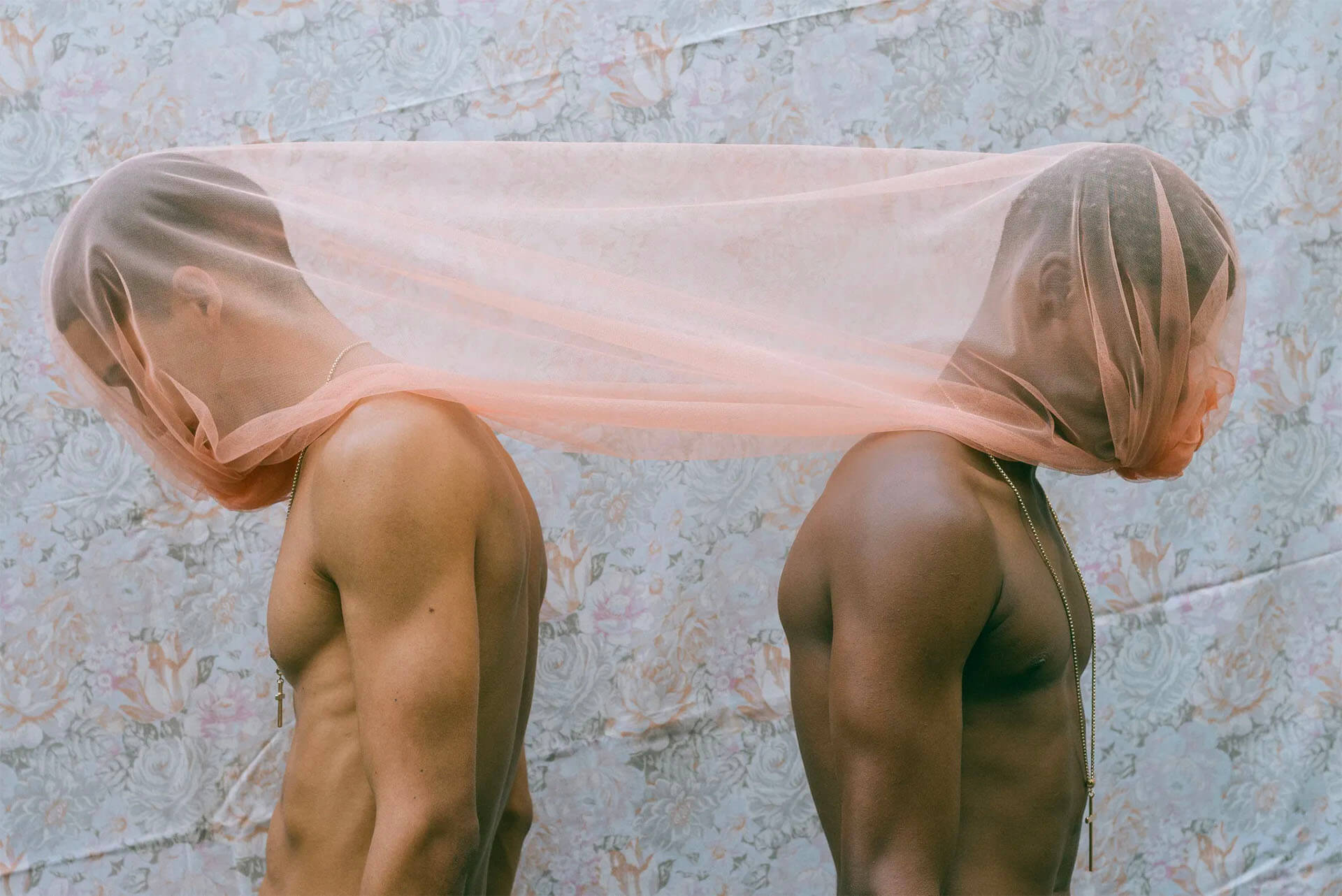
From the series “I am not my father” © Adriane de Souza
“I FEEL VERY BLESSED TO BE IN A POSITION OF TRUST, WHERE PEOPLE FEEL COMFORTABLE SHARING SUCH STORIES WITH ME.”
Lets talk about your photography! Your work portrays cultural diversity in a very poetic way, can you describe your creative process of understanding human interactions, and the social dynamics through photography?
A: The understanding comes from interaction. I sometimes plan my photoshoots, with an idea of what I would like to say through my work. But I am photographing human beings after all, with depth and stories. So when I take photos, I don’t like to rush. I talk about my projects, myself, and I ask the people involved, about their life and interests and eventually, we build a bond. With that, I learn a bit about them, their personal life, and their experiences. This has given me opportunities to listen to very intimate stories about others and some things that are so personal that they would get emotional while sharing. I feel very blessed to be in a position of trust, where people feel comfortable sharing such stories with me. There are many ways of understanding behaviors and society – and one way to do it is through human interaction.
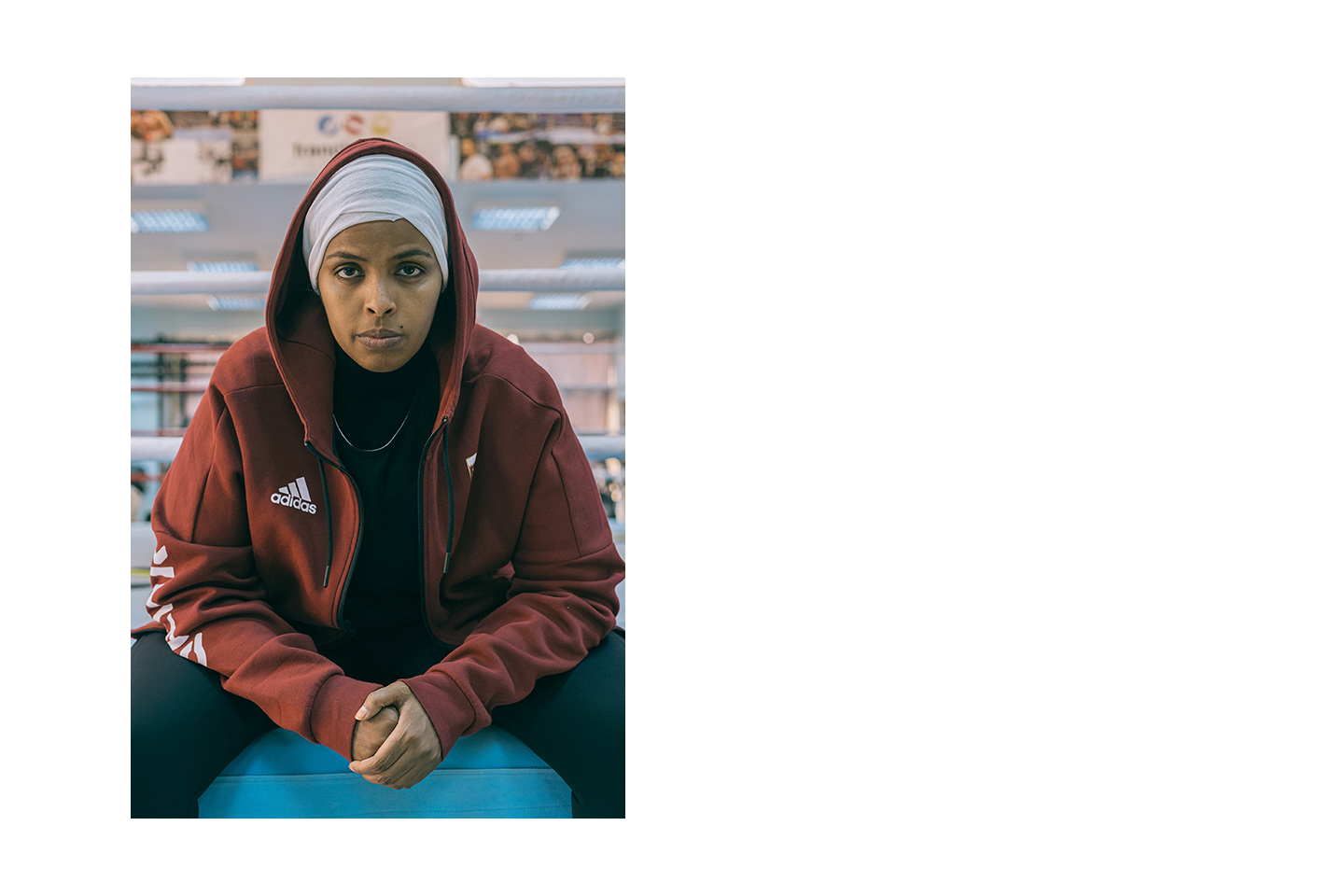
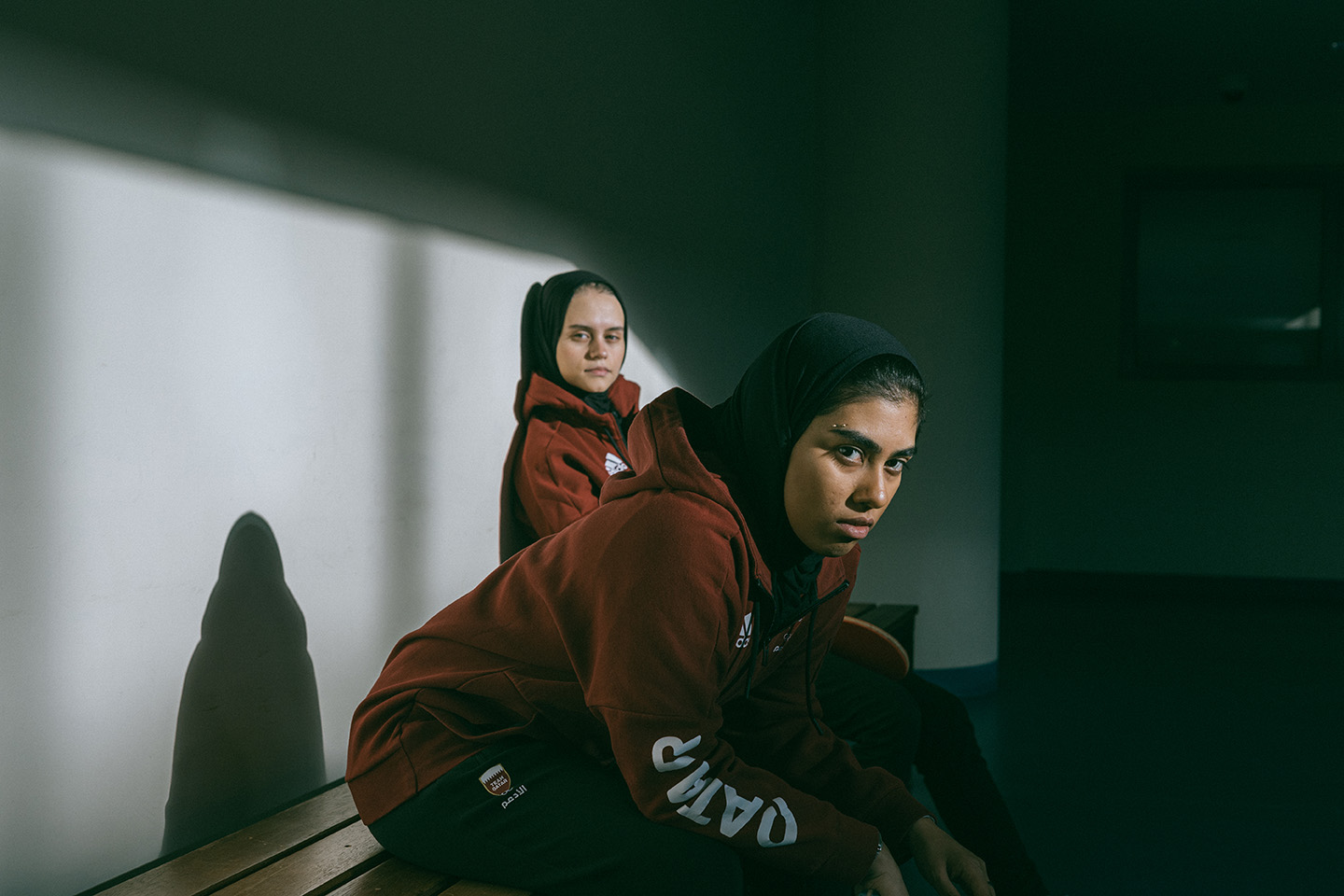
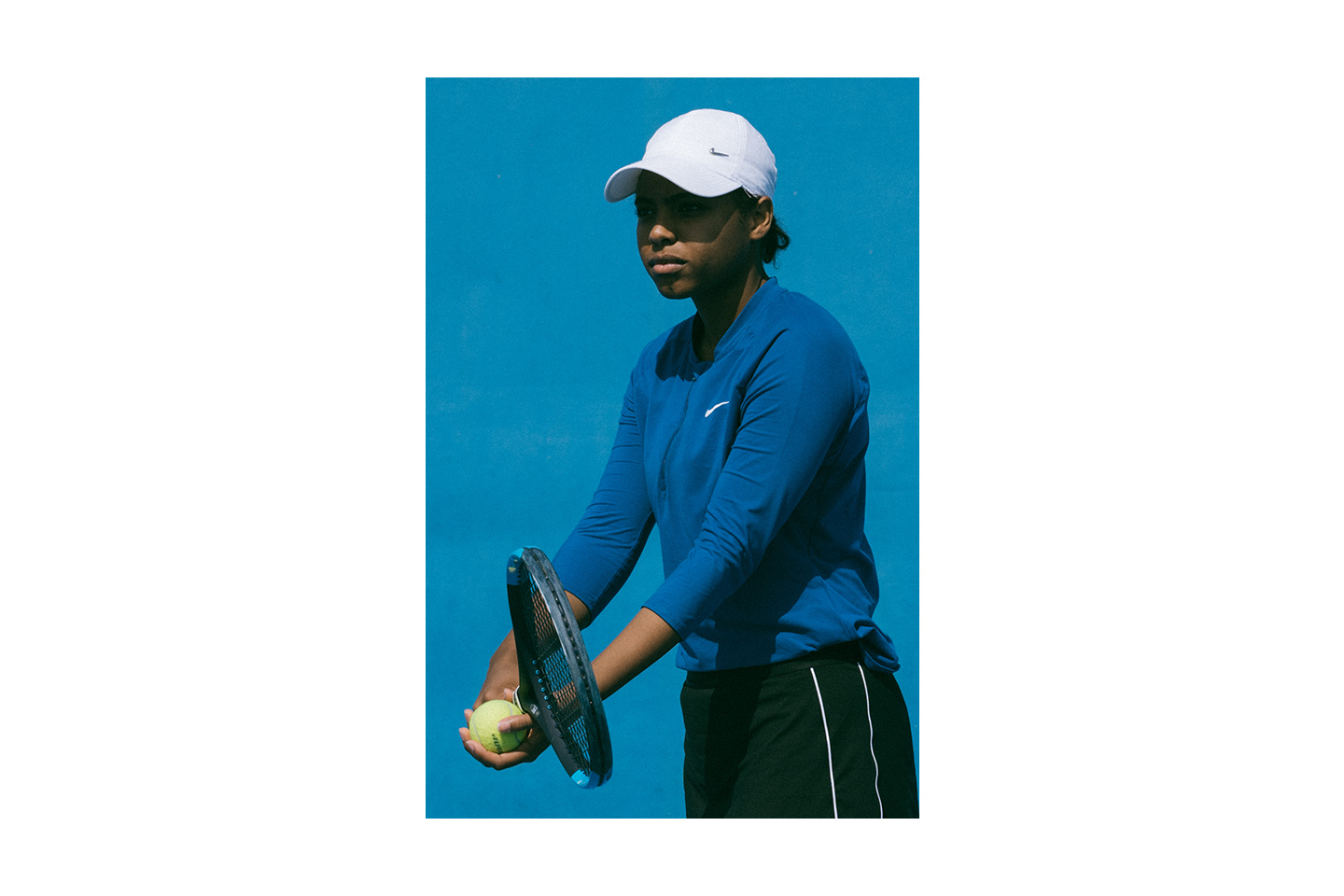
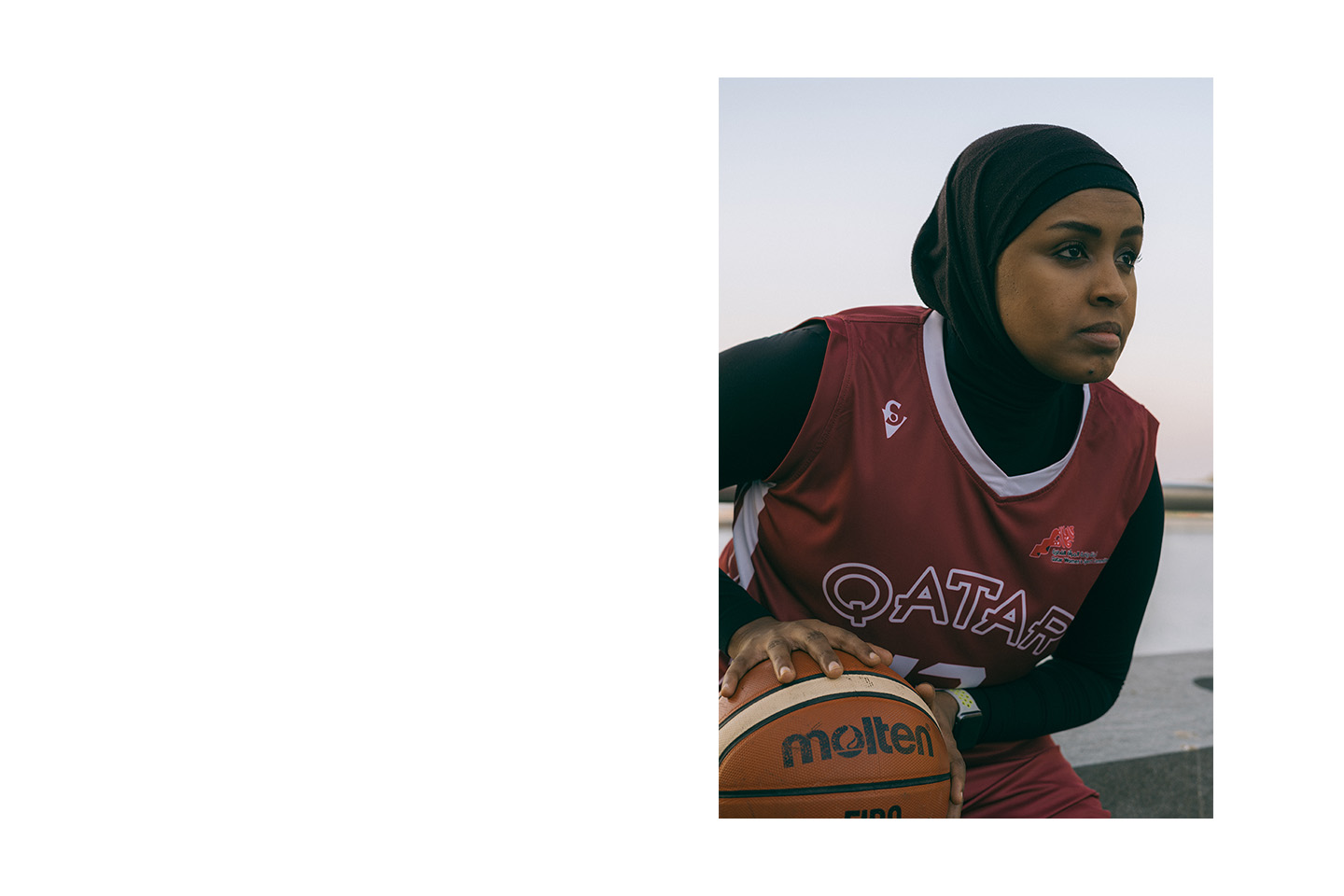
From the series “Qawiya” © Adriane de Souza
I’m truly drawn to your project “Qawiya”, can you talk to us about it and your experience through it’s manifestation?
A: My father was a professional athlete, and it would be unfair not to mention him in this project. I saw a determination in him, and also the toll that it took on our family for him to pursue his dreams and career. He spent a lot of time training and traveling with his team, and we didn’t spend a lot of time together. I loved sports as well, but not to the point of dreaming about becoming an athlete. However, I always had trouble understanding why was this space mostly occupied by men. I asked where are the women, but not before just assuming that sports were mostly for men. I asked that while living with a professional athlete and having his male friends visit us and talk about sports. When we went to watch my father play I was surrounded by men. So many women chose not to go because they did not feel comfortable.
So after revisiting these memories, I still didn’t have a reasonable answer for women being so misrepresented in sports and that’s happening all over the world. So I decided to start my project here, with women who are athletes in Qatar, and I heard so many interesting stories. The first female boxer in the country and also the GCC still competes with men because there are no other women to compete with her. This is real determination and something that so many other female boxers don’t have to face. Also, the issues with women who could not play basketball because wearing a hijab were not allowed. I have listened to their stories and the frustration of wanting to pursue something but not being able to because “you are not accepted for who you are.” This is also giving me opportunities to meet amazing women, with so many different backgrounds, dreams, and goals and to be able to photograph them and create powerful images to inspire other girls around the world to pursue their dreams.
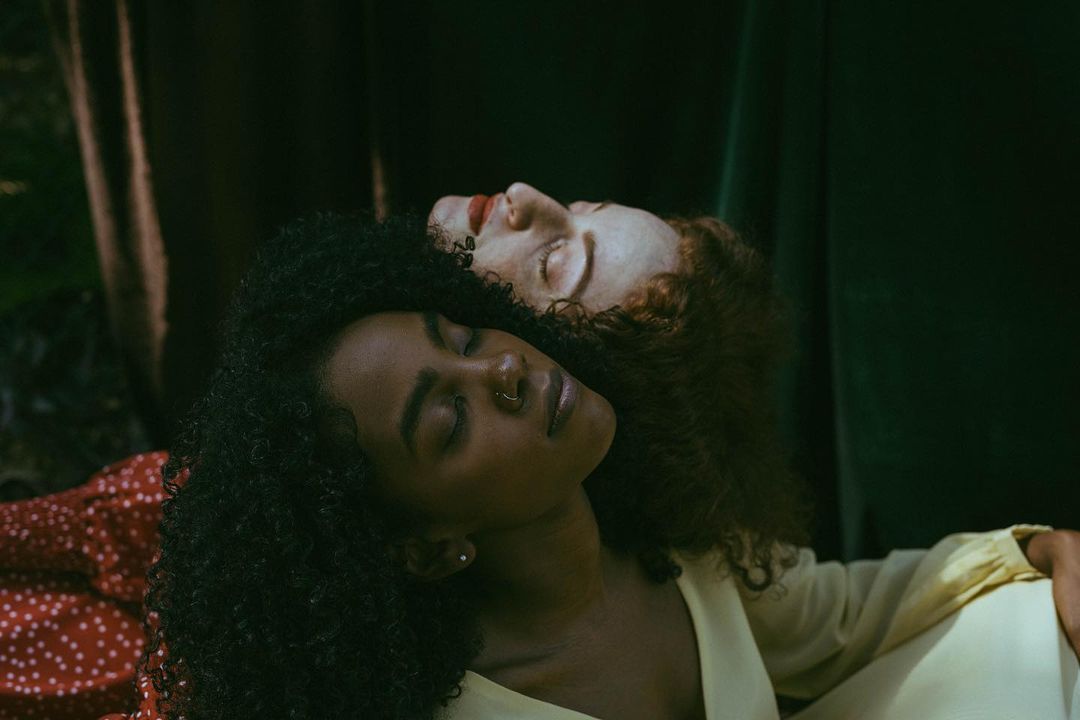
“Mai and Dina” © Adriane de Souza
What gives you a deep sense of belonging?
A: I am very close to my family and relatives, we always try to gather and do things together as much as we can. We are all up in each other’s business and I love that. Where I am from in Rio, we are so close to our families and everything involves everybody, which can be annoying sometimes, but I love this way of living – being present, and the whole family celebrating minor and major achievements together.
The Arab culture is rooted in family and that is something that I find so similar to mine, and this is one of the most important things for me, especially because I don’t get to spend as much time with my family and relatives as I’d like. So even watching families being together here, warms my heart in many ways. Besides that, Qatar is such an international country. In my close group of friends, we have someone from almost every continent. And I get to know so much about cultures and even some slang from different languages just because groups are so diverse. This is a very unique opportunity to grow, learn, and bond with different humans.
In closing can you share a mantra in Portuguese that inspires you?
A: “Ta tudo bem”. It’s not a complicated deep sentence, but I tell this to myself every day when I feel anxious or when I make mistakes. Whenever I feel like I will panic or overwhelmed, I tell myself everything will be ok.

Adriane de Souza is a Brazilian photographer currently based in Doha, Qatar. She received her BA degree in Social Sciences from the Federal University of Rio de Janeiro (UFRJ). Adriane has been selected by Adobe as a part of Adobe Rising Stars in 2019, featured in PH Museum Mobile Photography Book, the cover of O'cyano Magazine Ed9.2, won second place and was book cover for Photos from the Arab World by Jotun and won third place in Lens Culture Journeys 2020 Single Image Awards.
Visit Adriane's site to see her work and Instagram for ongoing activities.
Read next

Eman Alieditorial
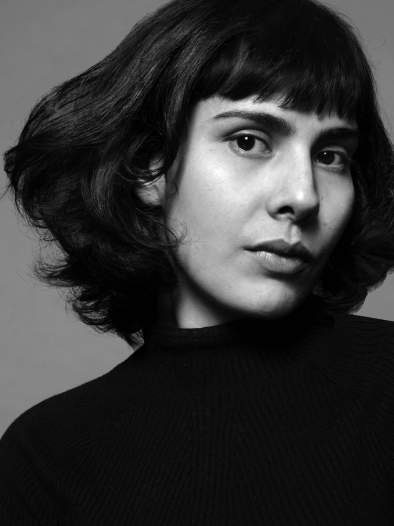
Latika Nehraeditorial
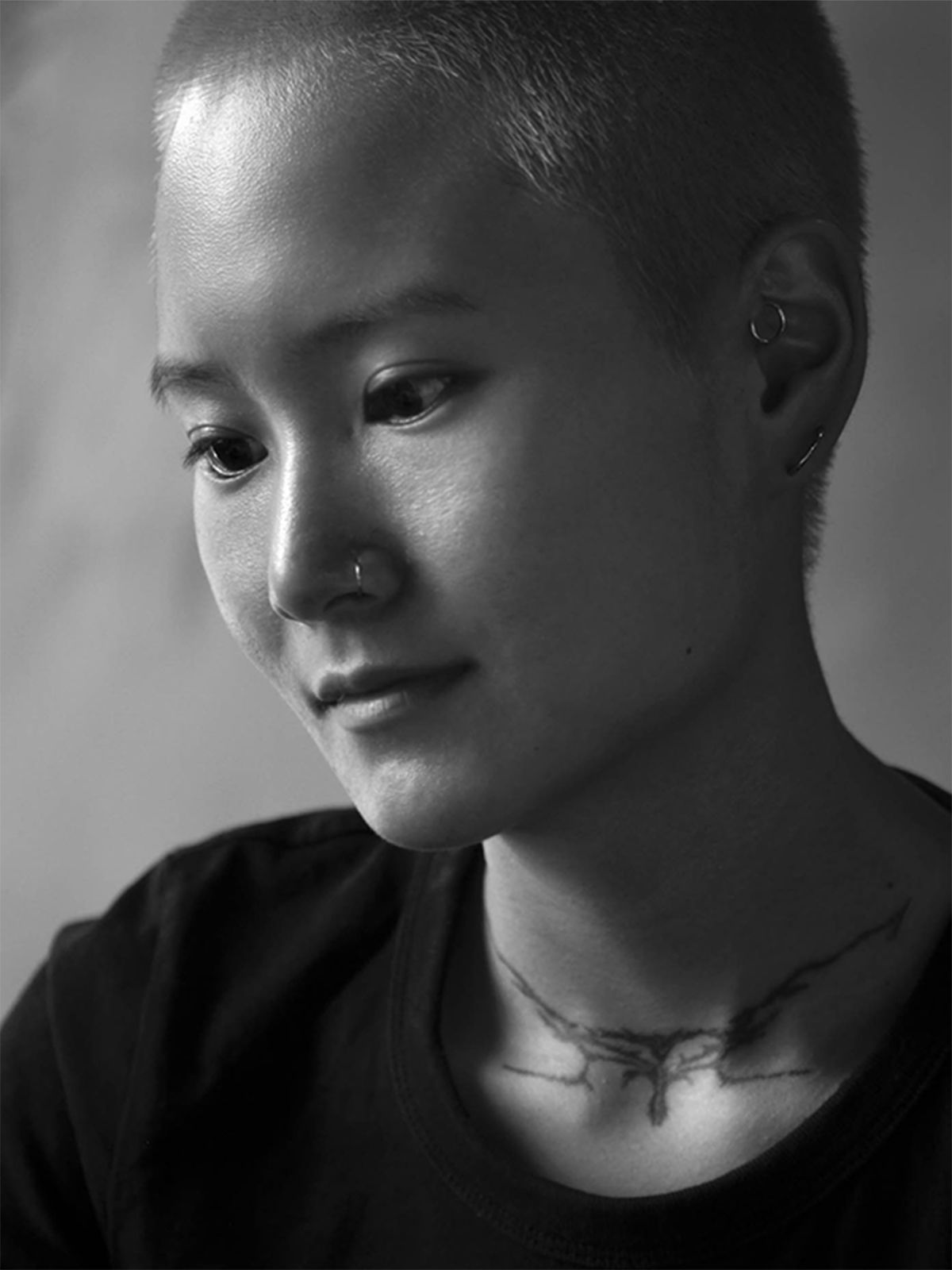
Saeam Kwoneditorial

Nana Afriyieeditorial

Federica Tentieditorial
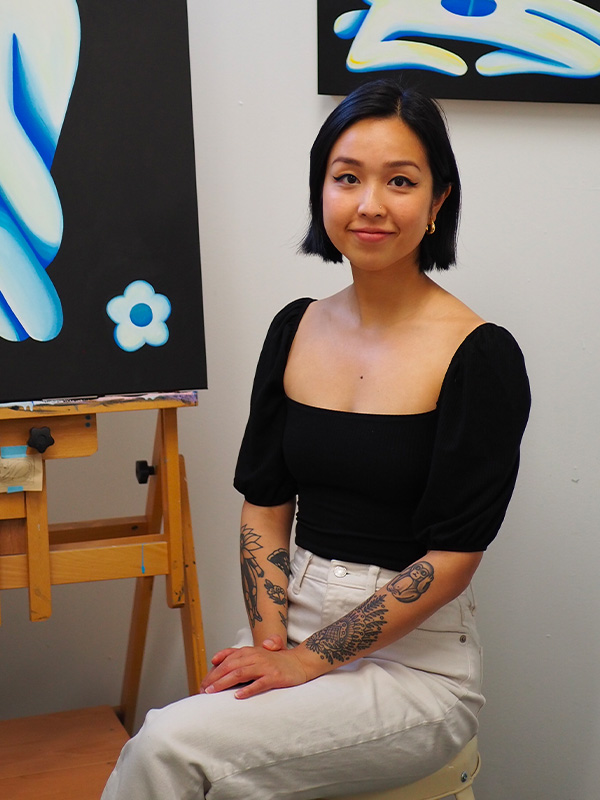
Jocelyn Tsaiheditorial
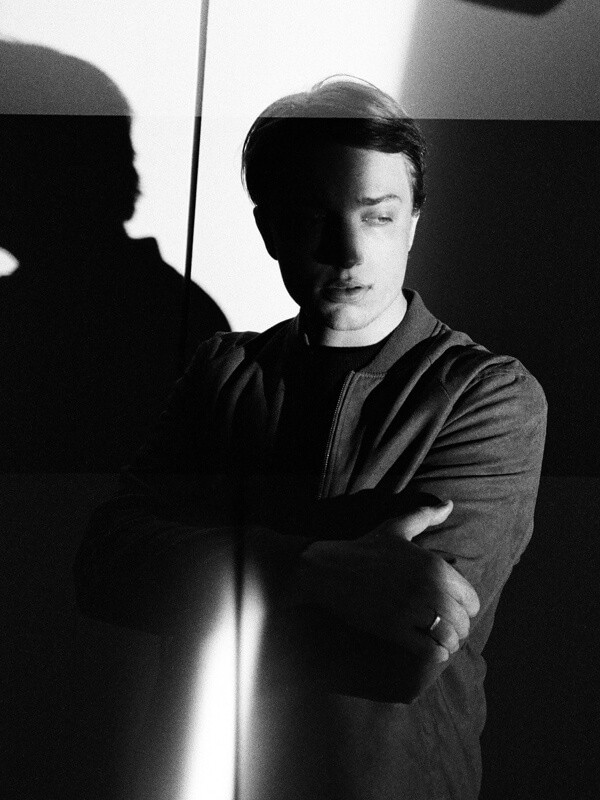
Marvin Schwaiboldeditorial
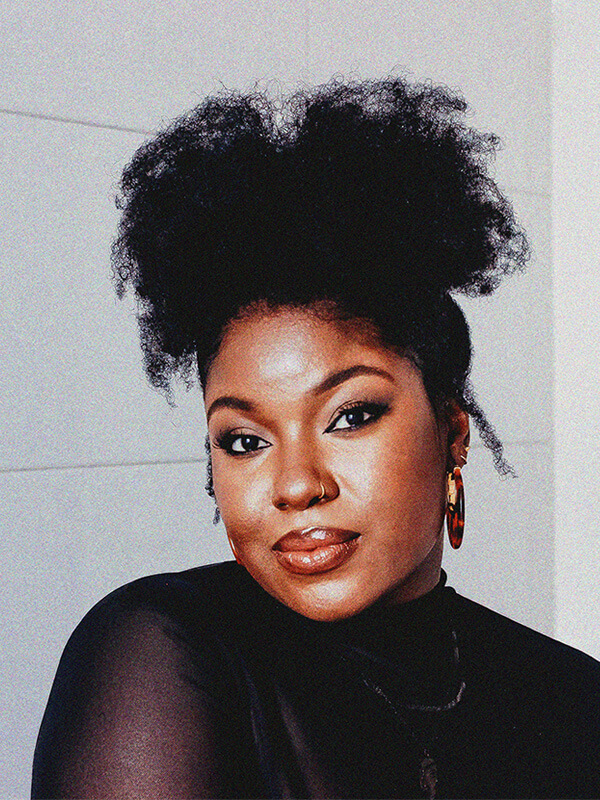
Sherida Kuffoureditorial
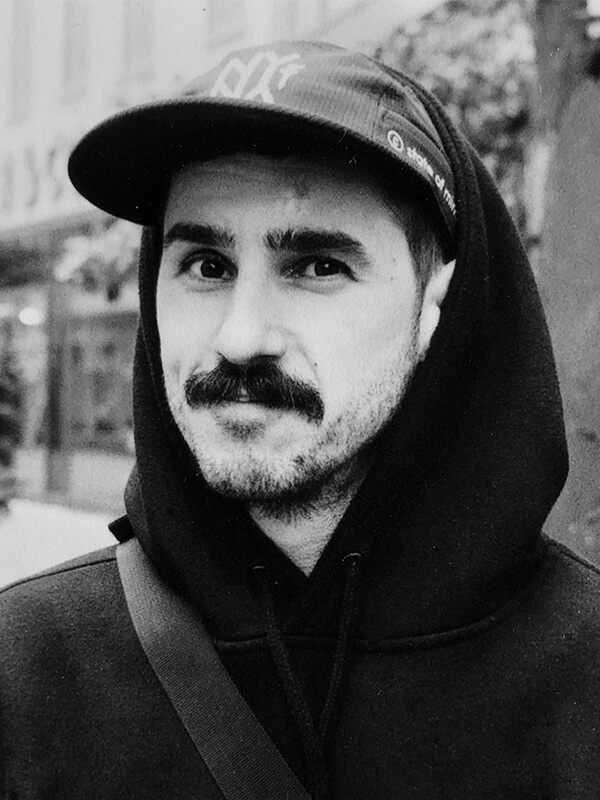
Redi Herissoneditorial
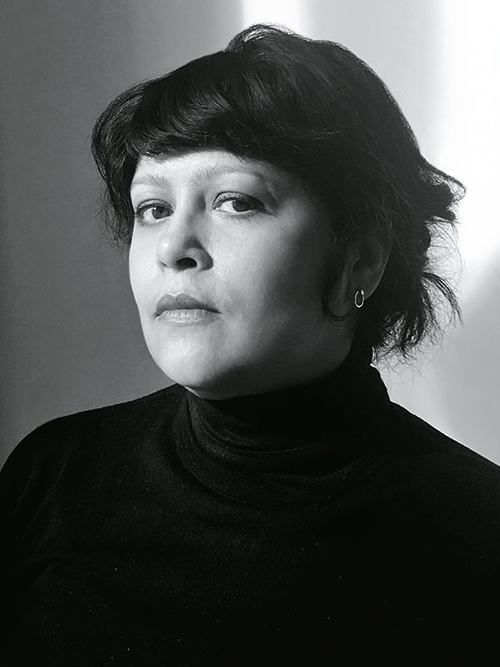
Amrita Marinoeditorial
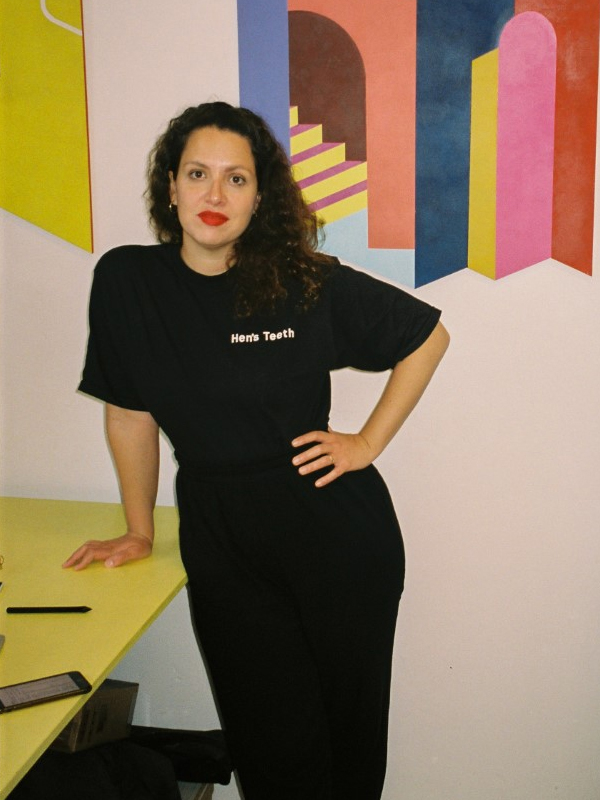
Marina Esmeraldoeditorial
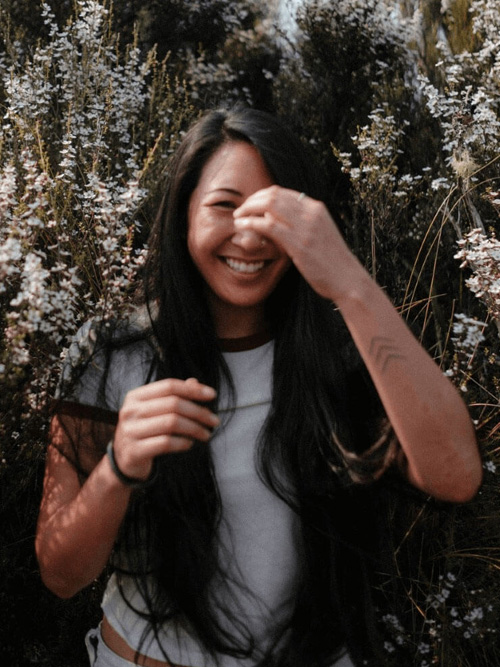
Tee Traneditorial
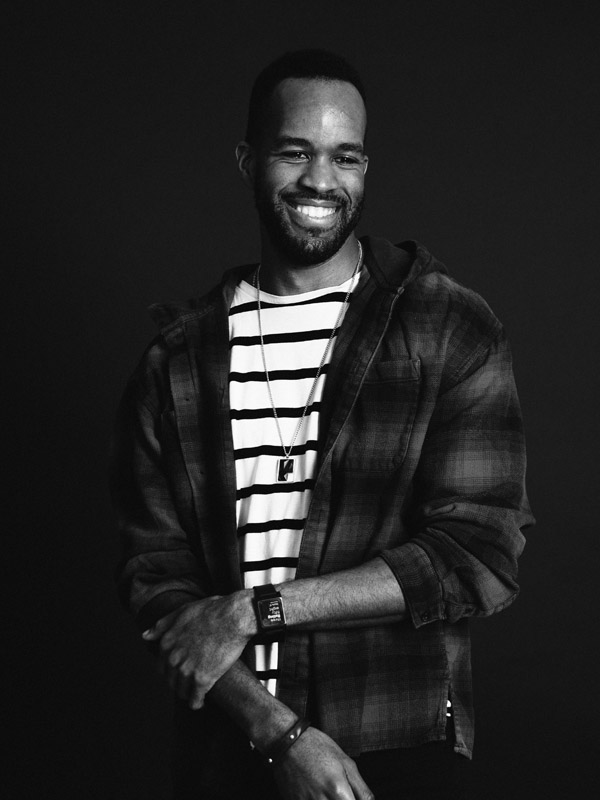
Lionel Tauruseditorial
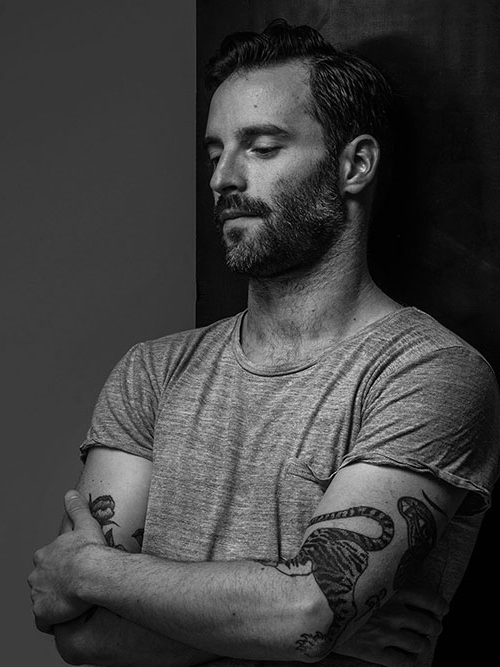
Xavier Bourdileditorial
Thriving on the arts of cultural exchange.
LFV is an inclusive online space celebrating humans living abroad and the cultures embracing them; by featuring personal stories that shed light on their journey and experiences.
We’re on a mission to find a deeper meaning of home!
Join us
LETTERS FROM VENUS ©2023
All images © of their respective owners.


